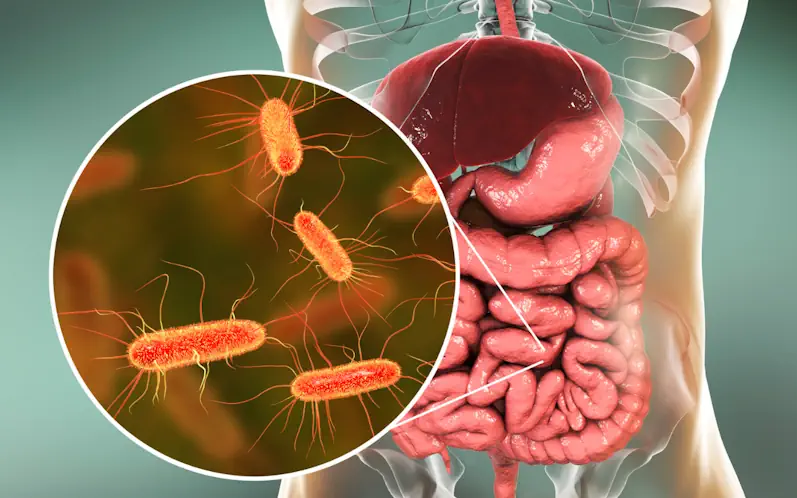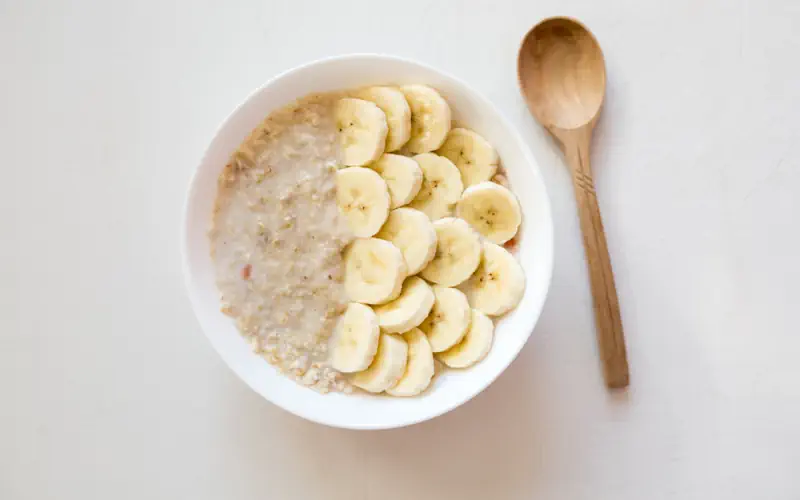The Impact of Gut Microbiome on Strength and Recovery

""
What's In This Article
- Key Highlights
- Introduction
- Unveiling the Gut Microbiome: The Foundation of Athletic Strength and Recovery
- The Science Behind the Gut Microbiome and Physical Performance
- Nurturing Your Gut for Optimal Performance
- The Dark Side: When Exercise Harms the Gut Microbiome
- The Impact of Gut Microbiome on Strength and Recovery
- Leveraging the Gut Microbiome for Peak Performance
- Conclusion
- Frequently Asked Questions
Key Highlights
- The gut microbiome, comprising trillions of bacteria, fungi, and viruses, significantly influences athletic performance and recovery.
- A balanced microbiome optimizes energy levels, reduces inflammation, improves nutrient absorption, and enhances mental fortitude.
- However, extreme exercise can disrupt the microbiome, leading to imbalances and inflammation and impacting overall health.
- Athletes can nurture their intestinal health through a balanced diet rich in fruits, vegetables, whole grains, fermented foods, and adequate hydration and sleep.
- Understanding its impact and employing personalized strategies can contribute to achieving peak performance.
Introduction
The human body is a fascinating ecosystem, home to trillions of microorganisms residing in our gut, collectively known as the gut microbiota. While often overlooked, these microscopic inhabitants shape athletic performance and overall health. Emerging research highlights the intricate connection between these microbiota and various aspects of athleticism, indicating that a flourishing gut ecosystem can significantly influence strength, endurance, recovery, and even mental resilience.

Unveiling the Gut Microbiome: The Foundation of Athletic Strength and Recovery
Within the human intestines lies a complex and dynamic world - the gut microbiome. This intricate ecosystem comprises trillions of microorganisms, including bacteria, fungi, and viruses, working harmoniously to impact various bodily functions. While traditionally perceived as aiding digestion, the microbiome's role extends far beyond, impacting athletic performance, recovery, and overall health.
Defining the Gut Microbiome and Its Role in the Human Body
The gut microbiome is a bustling metropolis of microorganisms residing within the human gastrointestinal tract, including bacteria, fungi, viruses, and other microbes. Though invisible to the naked eye, this complex ecosystem plays a crucial role in maintaining human health and impacts diverse aspects of our well-being.
Gut bacteria, the most studied members of this intricate community, are involved in numerous vital functions. These microscopic helpers contribute to the digestion and absorption of nutrients, regulate the immune system, protect against pathogens, and even influence our mood and behavior.
The microbiome's influence extends beyond the intestines, communicating with other organs and systems through various pathways, collectively known as the gut-brain axis. This intricate communication network highlights the interconnectedness of our body and the crucial role this microbiome plays in maintaining overall health.
The Connection Between the Gut Microbiome and the Immune System
The gut microbiome is a crucial training ground for the immune system, directly impacting its development and effectiveness. A healthy microbiome helps educate immune cells, training them to distinguish between harmless molecules and potential threats. This constant interaction strengthens the immune system's ability to fight off infections and maintain overall health.
This microbiome also influences the production of antimicrobial peptides, proteins that act as the body's first line of defense against pathogens. By promoting a diverse and balanced microbiome, athletes can bolster their immune systems, reducing their susceptibility to infections and illnesses that can hinder training and performance.
Studies have shown that athletes with a healthier microbiome experience a lower incidence of respiratory infections, a common ailment that can significantly impact training schedules and overall athletic success. By nurturing a robust microbiome, athletes can build a stronger defense against these common setbacks, leading to more consistent and productive training.

The Science Behind the Gut Microbiome and Physical Performance
Emerging research is continually uncovering the intricate ways the gut microbiome influences physical performance. Studies have shown that the composition and diversity of these microbes can impact muscle function, energy metabolism, inflammation, and even mental fortitude, all crucial aspects of athleticism.
Furthermore, research suggests that specific gut bacteria may enhance athletic performance by improving energy availability, reducing muscle damage, and supporting faster recovery times. These findings have spurred a surge of interest in harnessing the power of the microbiome for athletic optimization.
How Gut Health Influences Muscle Strength and Endurance
Gut health directly influences muscle strength and endurance by impacting the efficiency of nutrient absorption and utilization. A thriving microbiome ensures that athletes can effectively extract and absorb essential amino acids from their diet, vital for muscle protein synthesis and repair, contributing to increased muscle mass and strength.
Moreover, these bacteria play a role in producing short-chain fatty acids (SCFAs), particularly butyrate, a primary energy source for the cells lining the colon. These SCFAs contribute to overall energy metabolism and can enhance endurance by improving the body's ability to utilize carbohydrates and fats for fuel during prolonged physical activity.
Emerging evidence indicates a potential link between gut health and the production of creatine, a naturally occurring compound that plays a crucial role in energy production in skeletal muscle. By improving intestinal health through diet and lifestyle interventions, athletes may indirectly influence creatine production, further supporting strength training adaptations and enhancing athletic performance.
The Role of Probiotics in Enhancing Athletic Performance
Probiotics, live beneficial bacteria residing in specific foods and supplements, have gained significant attention for their potential role in enhancing athletic performance. Increasing microbiome diversity through probiotic intake can lead to a cascade of benefits, including improved nutrient absorption, reduced inflammation, and a strengthened immune system.
Studies have investigated specific probiotic strains and their effects on athletic performance, revealing promising results. Certain strains have been linked to improved endurance, reduced muscle damage, and faster recovery times, suggesting that strategically incorporating probiotics into an athlete's regimen can positively impact performance outcomes.
However, it's crucial to acknowledge that probiotic research is still evolving. More research is needed to pinpoint the optimal strains, dosages, and timing for specific athletic goals.

Nurturing Your Gut for Optimal Performance
Athletes can take proactive steps to optimize their gut health by focusing on dietary and lifestyle modifications that support a thriving microbiome. By adopting these strategies, athletes can gain an edge over their competition by maximizing nutrient absorption, reducing inflammation, and enhancing overall well-being.
This holistic approach to health lays the foundation for achieving peak athletic performance and fostering long-term health and resilience. A thriving gut microbiome is invaluable for any athlete striving for optimal recovery, enhanced training adaptations, and consistent performance gains.
Diet's Impact on the Gut Microbiome and Recovery Rates
A healthy diet plays a pivotal role in shaping the gut microbiome and directly impacts athlete recovery rates. Consuming diverse fruits, vegetables, legumes, and whole grains provides essential prebiotic fibers that nourish beneficial bacteria. These fibers fuel these microbes, fostering their growth and promoting a thriving and diverse internal ecosystem.
Furthermore, a diet rich in colorful fruits and vegetables ensures an adequate intake of antioxidants. These compounds combat oxidative stress and reduce inflammation throughout the body, accelerating post-exercise recovery time. By prioritizing these foods, athletes can create an environment conducive to muscle repair, glycogen replenishment, and overall recovery optimization.
Conversely, diets high in processed foods, refined sugars, and unhealthy fats can disrupt the delicate balance of the microbiome, leading to inflammation and impairing recovery processes. By minimizing these dietary culprits and prioritizing whole, nutrient-dense foods, athletes can create a gut environment that fosters optimal recovery and supports peak performance.
Prebiotics and Probiotics: Allies in Strengthening the Gut
Prebiotics and probiotics are essential components of a gut-healthy diet, acting as allies in strengthening athletes' microbiomes. Prebiotics, types of dietary fiber found in foods like onions, garlic, asparagus, and bananas, nourish beneficial bacteria, promoting their growth and activity. These prebiotic fibers act as fertilizers for the good bacteria in our intestines, fostering a thriving and resilient microbiome.
Probiotics, on the other hand, are live beneficial bacteria found in fermented foods like yogurt, kefir, sauerkraut, and kimchi, as well as in supplement form. By introducing these beneficial microbes, probiotics contribute to a more diverse and balanced gut ecosystem, enhancing the microbiome's ability to support overall health.
Prebiotics and probiotics work synergistically to create a thriving internal environment that fosters optimal nutrient absorption, reduces inflammation, and strengthens the immune system.
Personalized Nutrition Strategies for Athletes
Personalized nutrition has emerged as a powerful tool for athletes seeking to optimize their performance by tailoring dietary strategies to their unique microbiome composition and individual needs. Unlike generic nutrition plans, personalized approaches acknowledge that each athlete's microbiome is distinct, requiring a tailored approach to dietary interventions.
By analyzing an individual's microbiome composition, personalized nutrition plans can identify specific foods that may be beneficial or detrimental to their gut health and overall performance. For instance, a professional athlete might discover particular food sensitivities that hinder recovery or contribute to inflammation, prompting dietary adjustments for improvement.
This personalized approach empowers athletes to make informed food choices that support a thriving intestinal microbiome, optimize nutrient absorption, reduce inflammation, and enhance recovery. Thus, this approach ultimately contributes to achieving peak performance and supporting long-term athletic success.

The Dark Side: When Exercise Harms the Gut Microbiome
While moderate exercise is generally beneficial for gut health, excessive or intense training can disrupt the delicate balance of the microbiome. Strenuous exercise can temporarily reduce blood flow to the gut, potentially leading to inflammation, increased intestinal permeability, and imbalances in bacteria.
Athletes, especially endurance athletes, who frequently engage in prolonged and intense training, are particularly susceptible to these adverse effects. Recognizing the potential downsides of excessive exercise on intestinal health allows athletes and their support teams to implement strategies that mitigate these risks and maintain a healthy balance of bacteria.
Identifying the Threshold: How Much is Too Much
While pushing physical limits is inherent to athletic training, it's crucial to recognize the threshold at which exercise transitions from beneficial to detrimental for the microbiome. While moderate-intensity exercise promotes a favorable gut environment, excessive training volumes and intensities can have a negative impact.
During intense physical activity, the body prioritizes blood flow towards working muscles, diverting it away from the stomach and intestines. This reduced blood flow can negatively impact the gut lining, increasing permeability and potentially leading to "leaky gut syndrome", where undigested food particles, toxins, and bacteria can leak into the bloodstream.
Furthermore, high-intensity training, particularly prevalent among endurance athletes, can result in elevated lactic acid levels, potentially disrupting the delicate balance of bacteria and contributing to gastrointestinal distress. Listening to your body and recognizing signs of overtraining, like persistent digestive issues, fatigue, and impaired performance, is key to avoiding these negative impacts.
Symptoms of an Overstressed Gut Microbiome
Recognizing the symptoms of an overstressed gut microbiome is crucial for athletes to prevent long-term health issues and performance plateaus. Dysbiosis, an imbalance in the microbial community, is a common consequence of an overstressed digestive system, often manifesting as persistent digestive issues such as bloating, gas, constipation, and diarrhea.
Chronic inflammation, another hallmark of an overstressed system, can wreak havoc on an athlete's body. It can impair muscle recovery, increase susceptibility to infections, and hinder overall athletic performance. Additionally, chronic stress, common in demanding training schedules, further exacerbates digestive issues.
Elevated cortisol, the stress hormone, can disrupt intestinal barrier function, leading to increased inflammation and exacerbating dysbiosis. Being mindful of these symptoms can be crucial for athletes, allowing for timely interventions that optimize their training, nutrition, and recovery strategies to support digestive health.
Strategies to Mitigate Negative Impacts on the Gut
Implementing strategies to mitigate the negative impacts of strenuous exercise on the gut microbiome is crucial for athletes to maintain optimal performance and overall health. Incorporating rest days and recovery periods into training schedules is paramount, allowing the digestive system time to repair and the microbiome to rebalance.
Prioritizing sleep and stress management techniques, such as mindfulness or meditation, can help regulate cortisol levels and minimize its disruptive effects on the microbiome. Additionally, probiotics, prebiotics, and glutamine supplementation can further support digestive health. Below is a simple table you can use as a guide:
|
Strategy |
Benefits for Gut Health |
|
Probiotic Supplementation |
Introduces beneficial bacteria, promoting microbiome diversity and balance. |
|
Prebiotic Intake |
Provides fuel for beneficial bacteria, fostering their growth and activity. |
|
Glutamine Supplementation |
Supports intestinal barrier function, reducing intestinal permeability and inflammation. |
By adopting a holistic approach to training, recovery, and nutrition, athletes can bolster their mental toughness and support a more resilient digestive system, better equipped to withstand the demands of intense training.

The Impact of Gut Microbiome on Strength and Recovery
Effective post-exercise recovery goes beyond addressing muscle soreness and fatigue; it also involves focusing on replenishing and repairing the microbiome. Implementing strategies promoting gut healing and strengthening resilience is crucial for optimizing subsequent training adaptations, enhancing nutrient absorption, and mitigating inflammation.
By prioritizing gut-supporting practices during recovery, athletes can bounce back stronger, enhance their ability to adapt to training stimuli and maintain their competitive edge.
Restorative Foods and Supplements for Gut Recovery
Incorporating restorative foods rich in important vitamins and minerals is essential for athletes to support their digestive recovery post-exercise. Consuming foods abundant in prebiotic fiber, like bananas, oats, asparagus, and onions, nourishes beneficial bacteria, promoting their growth and enhancing microbiome recovery.
Furthermore, ensuring adequate protein intake through lean meats, fish, poultry, and plant-based sources like legumes and tofu helps repair and rebuild muscle tissue while also providing essential amino acids crucial for digestive health and barrier integrity. Supplements can play a supportive role in intestinal recovery, particularly for athletes with increased nutrient needs.
Probiotics can be beneficial, particularly those containing specific strains that reduce inflammation and improve gut barrier function. Additionally, glutamine, an amino acid crucial for gut lining repair, can be supplemented to support healing and reduce intestinal permeability.
The Importance of Hydration and Sleep in Gut Health
Hydration and sleep are often overlooked, but they are vital components of a comprehensive digestive health strategy for athletes. Proper hydration, particularly post-exercise, is essential for maintaining gut motility, preventing constipation, and supporting the growth and activity of beneficial bacteria.
Additionally, sufficient sleep, ideally 7-9 hours per night, is crucial for digestive repair and recovery. During sleep, the body undergoes essential restorative processes, including producing hormones involved in gut barrier maintenance and regulating gut motility, supporting overall health.
Chronic sleep deprivation, a common issue among athletes, disrupts these restorative processes and can contribute to gut dysbiosis, inflammation, and impaired recovery. Thus, it highlights the importance of prioritizing sleep for optimal digestive and overall health.
Techniques to Reduce Inflammation and Promote Gut Healing
Chronic inflammation can hinder athletic performance and delay recovery. Implementing techniques to reduce inflammation and promote gut healing is vital for athletes to perform at their best. A balanced diet rich in anti-inflammatory foods, such as fatty fish, leafy greens, berries, and turmeric, provides the body with potent antioxidants and anti-inflammatory compounds.
Managing stress with meditation, yoga, and deep breathing regulates cortisol levels, reducing stress-induced inflammation affecting digestive health. Including these practices promotes a strong gut lining and a balanced microbiome and reduces inflammation. Consuming gut-healing foods like bone broth (high in collagen and glutamine) repairs exercise-induced damage. Fermented foods like sauerkraut, kimchi, and kefir introduce beneficial bacteria for a healthy balance.

Leveraging the Gut Microbiome for Peak Performance
As research continues to unravel the intricate workings of the gut microbiome and its impact on athletic performance, athletes are presented with a unique opportunity to leverage these findings to achieve peak performance. By understanding the connection between digestive health, training adaptations, and recovery, athletes can make informed decisions to optimize their training regimens and nutrition strategies.
Advanced Probiotic Formulas for Athletes
Advanced probiotic formulas tailored for athletes are innovative tools to boost digestive health and performance. These formulas contain specific probiotic strains selected for athlete benefits, such as improved endurance and faster recovery. Some also include prebiotics to enhance colonization and activity of beneficial bacteria. Targeted probiotic formulas are becoming essential in optimizing athletes' digestive health for peak performance.
Tailoring Gut Microbiome Interventions for Enhanced Recovery and Strength
Tailoring interventions for athletes can enhance recovery and strength. Analyzing an athlete's microbiome allows personalized interventions to optimize performance by addressing imbalances or deficiencies, such as supplementing with probiotics or adjusting diet for improved muscle recovery. Understanding its impact on muscle function and recovery enables a more effective approach to training and nutrition. Personalized interventions help athletes recover faster, adapt to training, and boost overall performance.
Monitoring the Gut Health: Tools and Technologies
Advancements in tools and technologies make monitoring digestive health more accessible. At-home testing kits analyze the microbiome composition by analyzing stool samples. While research is ongoing to standardize tests, institutions like Harvard Medical School are studying the microbiome's impact on health conditions. These tools can potentially revolutionize digestive health, offering personalized interventions for better overall health and performance.
Conclusion
In conclusion, understanding and nurturing the gut microbiome is crucial for optimizing athletic performance and recovery. The symbiotic relationship between digestive health and physical well-being highlights the importance of maintaining a balanced microbiome through dietary choices, probiotics, and personalized nutrition strategies. Athletes can enhance their strength, endurance, and overall performance by prioritizing this aspect of health. Monitoring digestive health, implementing restorative practices, and leveraging advanced probiotic formulas can improve recovery rates and peak physical condition. Embracing a holistic approach that considers the digestive system as a foundational element in athletic training can significantly advance strength and recovery.
Frequently Asked Questions
How quickly can changes in diet affect the gut microbiome?
Dietary changes can remarkably quickly influence the composition and activity of this bacteria in healthy individuals. As a dynamic ecosystem, it responds to dietary shifts within a matter of days, with new bacterial populations emerging based on the food sources provided.
Can a damaged gut microbiome be fully restored?
A damaged microbiome can often be restored through consistent effort and proper digestive health interventions. Recovery is possible by adopting a balanced diet rich in diverse microbiota, incorporating beneficial bacteria through probiotics, and addressing underlying causes of damage.
Are there exercises that benefit or harm the gut microbiome?
Moderate-intensity exercise benefits the microbiome, such as brisk walking or strength training. However, extreme endurance activities like marathons can have a negative impact, potentially leading to inflammation and dysbiosis.
How often should you monitor your gut microbiome?
While there's no set frequency, athletes can benefit from monitoring their microbiome a few times a year or whenever they experience significant changes in training, diet, or overall health. This tracking helps assess microbial diversity and adjust strategies as needed.
What are the signs of an unhealthy gut microbiome in athletes?
Athletes with an unhealthy microbiome might experience symptoms like persistent digestive issues (bloating, gas, constipation, diarrhea), increased fatigue, impaired recovery from training, weakened immunity, and reduced overall wellness.